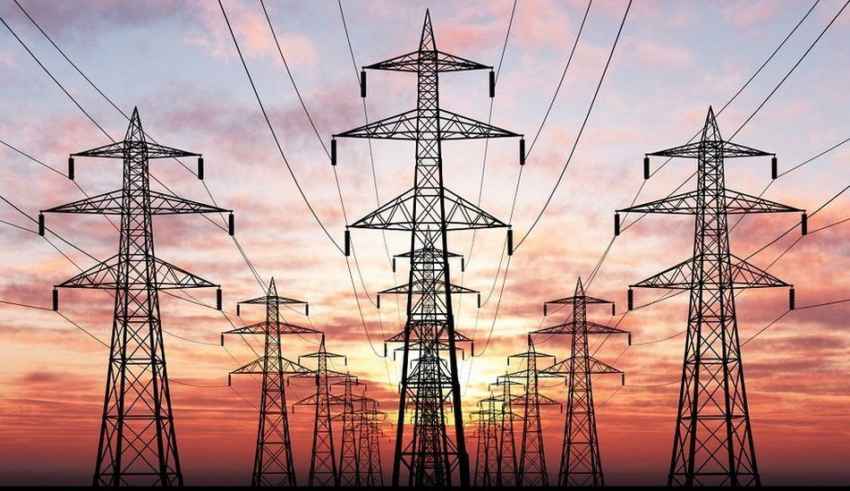
The sudden rise in energy prices all over Europe has governments and citizens worrying about the upcoming winter months and possibly exploding energy bills for consumers. To temper the negative effects the European Commission presented a list of immediate countermeasures on the one side (Commission, 2021): the provision of emergency income support to consumers affected by energy poverty through vouchers or partial payment of bills – potentially covered by EU Emissions Trading System revenues; authorization to temporarily defer the due date of invoices; taking protective measures to avoid disconnection from the network; providing for temporary and specific reductions in tax levels for vulnerable households; granting aid to businesses or industries, in accordance with EU state aid rules. On the other side: the strengthening of the international reach in the field of energy to ensure the transparency, liquidity and flexibility of international markets; investigating possible anti-competitive behaviour in the energy market and instructing the European Securities and Markets Authority (ESMA) to further strengthen the monitoring of carbon market developments; facilitating wider access to and support for renewable energy contracts.
As can be seen from these proposals, they do not actually aim to tackle the actual underlying problem, which is a deficiency in energy supply. The first set of proposals only tries to provide (temporary) financial aid to some affected parts of society and accepting soaring prices; the latter set are already very wide policy areas that will take years to actually implement and show their effects. In either case, it displays Brussels’ fatalistic attitude towards its own ideologically-driven policies and its failure to adapt to reality.
What lies at the heart of the current price hikes in Europe? The EU’s short-sighted and misguided policies in regard to energy and fossil fuels, especially Russian gas. Green policies to force a rash transition to renewable energy and, hence, the abandoning of long-term contracts with Russia as the main gas supplier and a switch to buy natural gas short-term for the spot market price (which can vary widely), in order to reduce dependence on Russian supplies (Elijah, 2021).
Furthermore, the taxes on fossil fuels had been increased by policymakers with the best intentions of nudging consumers away from their use towards greener energy sources. However, as renewable energy sources’ biggest problem remains their unreliability in providing electricity, fossil fuels have to fill the gap. On a side note, more and more EU countries now see the need to expand nuclear energy as a necessary energy source – which has the great advantage of also being less polluting (meaning virtually zero CO2 emissions).
Last year’s falling energy demands largely due to lockdowns and economic shutdowns may have created the illusion that a permanent state with less energy demand could be reached fast and be sustained. In 2020, gas prices fell dramatically as both Russia and Ukraine filled their gas storage facilities as much as possible. Already, in December 2019, a record amount of 91.5 bm3 – 20 bm3 higher than at the end of 2018 – was in storage. And with falling demand due to Covid-related government restrictions gas storage amounts were still at record highs during last year’s spring (Aris, 2021). Furthermore, the global gas market had seen an oversupply before large-scale measures against the spread of CoVid-SARS-2 were gradually implemented, as LNG (Liquefied Natural Gas) supply in the biennial of 2018-19 from new projects increased supply; this happened at a point when global demand was lower than growth expectations (Yermakov, 2021).
Confronted with low prices and low demand in 2020, Moscow decided to reduce its overall production by 6.2% (or 46 bm3) to 693 bm3 in comparison to 2019. Russia’s largest energy company, Gazprom, reduced its production by 47 bm3 year on year, or 9.3% (down to 455 bm3), thus allowing smaller companies to increase their gas production. Gazprom also reduced its filling of gas storage facilities by 38% to 33 bm3. Concurrently, Russia curtailed its gas purchases from Central Asian states (Aris, 2021). Accusations that Russia would try to circumvent gas supplies via Ukraine are unfounded as well since Gazprom signed a new transit deal to pump 40 bm3 of natural gas via Ukraine’s Druzhba pipeline until 2024 (ibid.).
With limited availability of LNG supplies to Europe due to higher LNG prices in Asia – which diverted naturally more LNG away from European markets -, the declining indigenous production of gas in Europe contribute to this perfect storm (Yermakov, 2021). Whereas, on the one hand, some gas fields, such as in the North Sea, have been approaching depletion pushing costs up, and, on the other hand, insufficient investments in new production on account of environmental concerns and policies connected to the New Green Deal have been made, consumption has remained robust (Bne IntelliNews, 2021). The push to phase out fossil fuels (including gas) and slash local gas production has made the EU more dependent on gas imports than at any time before. Now, nearly 90% of gas supplies have to be imported, primarily from Russia and Norway (Eurostat, 2021). Hence, EU policies put Russia in a stronger position with more leverage over European energy supplies.
It should also be mentioned that the European Commission in an attempt to prevent the completion of the Nord Stream 2 pipeline, unnecessarily adding more bureaucracy to an otherwise well-functioning European energy market in 2019 (Bochkarev, 2019). As a result, Brussels accrued more power to decide upon pipeline projects from third countries reducing the national sovereignty of member states according to Art. 194(2) of the Treaty of the Functioning of the EU to determine how to satisfy their energy demands (ibid.).
To remedy the current energy crunch and price spikes, several EU member states already proposed that the EU should make “group purchases” of natural gas so as to increase the union’s bargaining power vis-à-vis suppliers, as Spain suggested. From Greece came the call to establish an EU fund to help states through the crisis, whereas France called to uncouple electricity prices from gas prices. However, it is to be expected that other member states will resist any quick fix to the existing system, such as Germany, which does not seem inclined to jeopardize their relations with Russia (AFP, 2021). As Yermakov (2021) wrote the EU demands greater flexibility from suppliers in both price and supply; something not even Russia may provide.
From comments by Russian President Vladimir Putin, who pointed out that the cancelling of many long-term gas contracts to spot deals have made the EU more prone to volatile gas prices, offered to negotiate new long-term contracts (as done with Hungary recently) and suggesting that a sped-up certification of the Nord Stream 2 pipeline would make an increase in gas supply to European markets possible; a solution Germany’s energy regulator has not agreed to yet (Elyatt, 2021).
The only economically rational choice left for a short-term fix to the current crisis consists in increasing gas supply to the market. Pointing the finger at Russia and blaming it for today’s developments shows the lack of accountability of decision makers in Brussels.
Andreas Roesl
Bibliography:
AFP (2021, Oct 05). EU member states call for joint action as energy prices surge. https://energy.economictimes.indiatimes.com/news/power/eu-member-states-call-for-joint-action-as-energy-prices-surge/86770905
Aris, B. (2021, Sep 26). How a V-shaped market and ageing pipes and fields sent gas prices soaring. https://www.intellinews.com/long-read-how-a-v-shaped-market-and-ageing-pipes-and-fields-sent-gas-prices-soaring-221422/?source=russia
BneIntelliNews (2021, Oct 12). From Dutch earthquakes to a UK fracking ban: how declining European gas supply has contributed to the current crisis. https://www.intellinews.com/from-dutch-earthquakes-to-a-uk-fracking-ban-how-declining-european-gas-supply-has-contributed-to-the-current-crisis-223314/?source=russia
Bochkarev, D. (2019, Apr 18). Gas Directive: Overly burdensome regulation of the EU gas market? https://www.atlanticcouncil.org/blogs/energysource/gas-directive-red-commissars-in-charge-of-the-eu-gas-market/
Commission (2021, Oct 13). Speech by Commissioner Simson on the Communication on Energy Prices. https://ec.europa.eu/commission/presscorner/detail/en/speech_21_5244
Elijah, D. (2021, Jul 09). Gazprom long-term contracts to drop 30% by 2030. https://www.icis.com/explore/resources/news/2021/07/09/10658146/gazprom-long-term-gas-contracts-to-drop-30-by-2030
Elyatt, H. (2021, Oct 07). The U.S. was right — Europe has become a ‘hostage’ to Russia over energy, analysts warn. https://www.cnbc.com/2021/10/07/europe-is-now-a-hostage-to-russia-over-energy.html
Eurostat (2021). Natural gas supply statistics. https://ec.europa.eu/eurostat/statistics-explained/index.php?title=Natural_gas_supply_statistics
Yermatov, V. (2021). Big Bounce: Russian gas amid market tightness. OIES, September. https://www.oxfordenergy.org/wpcms/wp-content/uploads/2021/09/Russian-gas-amid-market-tightness.pdf
By The European Institute for International Law and International Relations.














